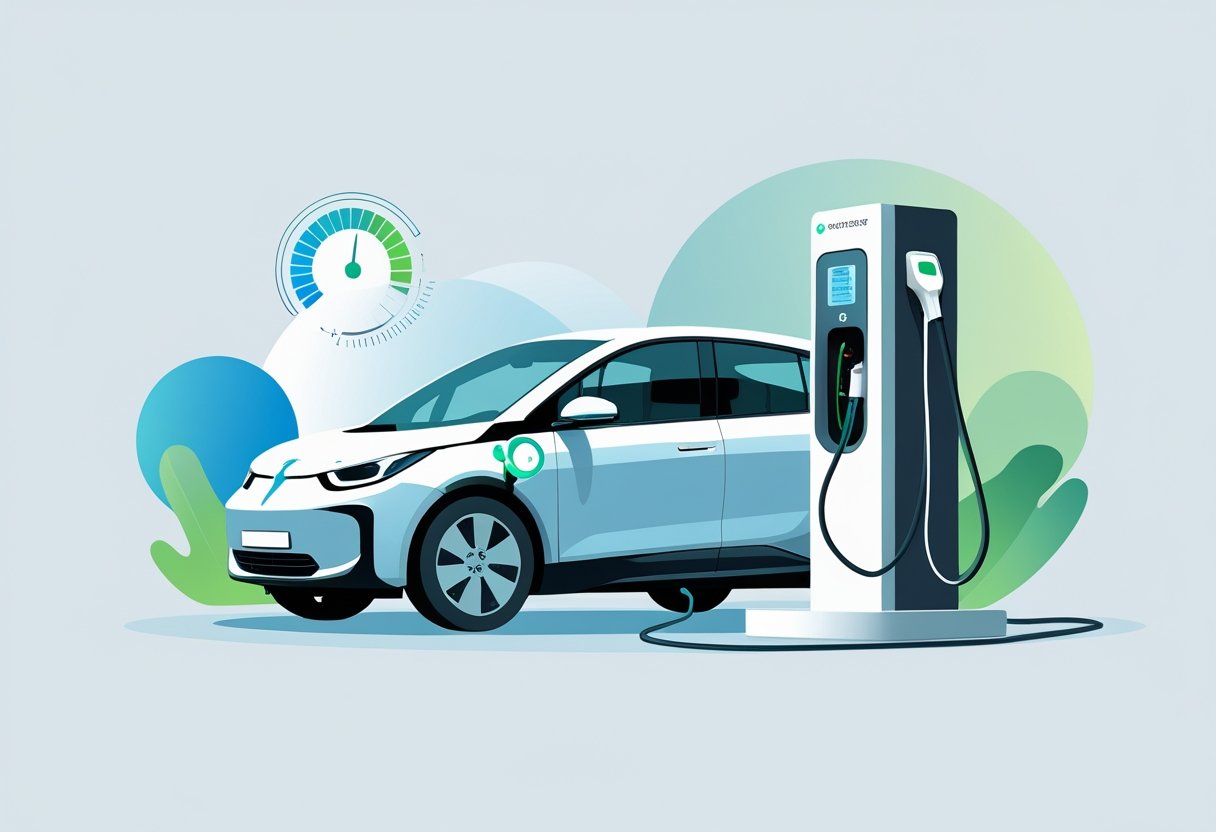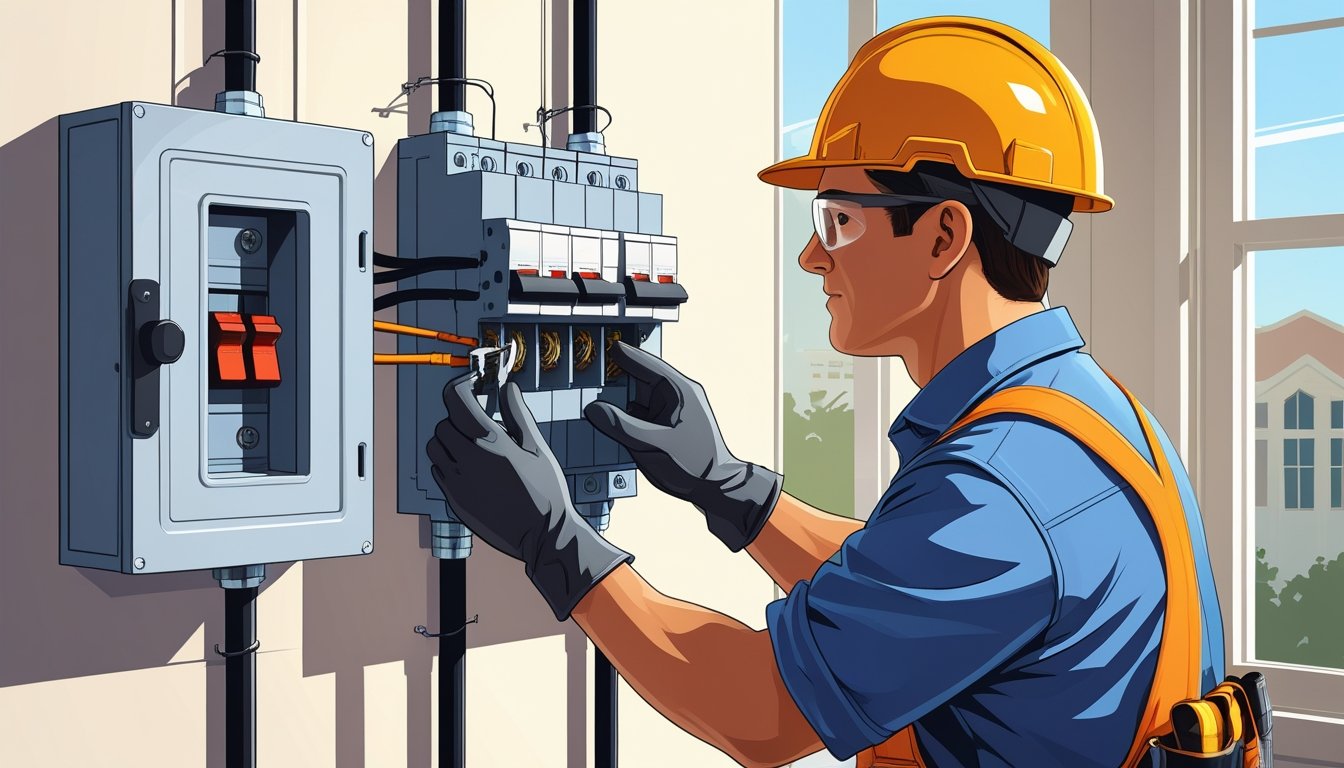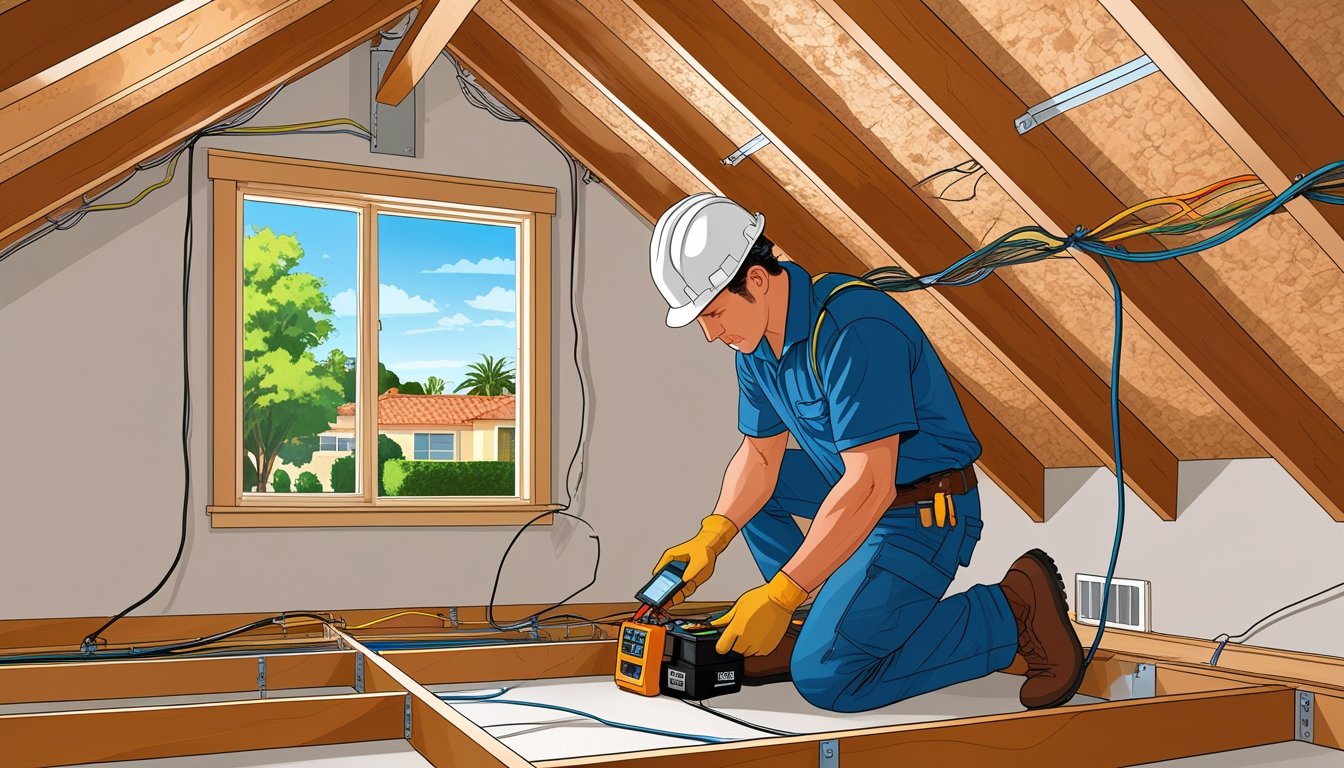As electric vehicles (EVs) become more popular, understanding the charging process is essential for all drivers. Charging times can vary significantly based on the type of charger, battery size, and current charge level, impacting your travel plans and day-to-day usage. Knowing how long it will take to charge your vehicle can help you maximize your time on the road.
For most drivers, charging at home with a Level 2 charger typically takes around 4 to 8 hours for a full charge, depending on your EV's battery capacity. Meanwhile, fast-charging stations can reduce this time to as little as 20 to 30 minutes for significant boosts. As you navigate your options, consider the installation of an EV charger from a trusted provider like AAA Electrical Services, ensuring a reliable and efficient charging solution tailored for your home.
With focused efforts on your family's safety, AAA Electrical Services provides expertise in EV charger installation and other electrical needs. Knowledge of charging times and options not only enhances your driving experience but also contributes to energy efficiency and sustainability in your daily life.
Factors That Affect EV Charging Time
Charging time for electric vehicles (EVs) varies based on several key factors. Understanding these elements can help you make informed decisions about charging your vehicle efficiently. Below are the three main influences on charging time.
Battery Capacity and Size
The battery capacity and size directly impact how long it takes to charge an EV. Larger batteries, measured in kilowatt-hours (kWh), require more time to reach full charge. For example, an EV with a 60 kWh battery will take longer to charge than one with a 30 kWh battery. Typically, charging times can range from 30 minutes to over 12 hours, heavily influenced by the battery size.
As you consider charging options, keep in mind that vehicles with larger batteries allow for longer driving ranges. If you own a larger battery car, be prepared for lengthier charging sessions. If you've installed an EV charger professionally through a reliable provider like AAA Electrical Services, your setup may optimize charging efficiency.
Charging Rate and Maximum Charge Rate
Charging rate is another vital factor influencing how quickly your EV can recharge. This refers to the amount of power delivered to the battery and varies significantly based on the charger type.
- Level 1 chargers: Typically deliver around 1.4 kW, resulting in slow charging times of 40-50+ hours for a complete charge.
- Level 2 chargers: Provide 3.7 to 22 kW, reducing charging time to as little as 4-10 hours, making them a common choice for home installations.
Moreover, the vehicle's maximum charge rate also plays a role. If your EV can only accept a certain kilowatt amount, using a charger with a higher capacity won't speed up the process. To enhance your charging experience, consider installing a Level 2 charger with expert help from AAA Electrical Services.
Vehicle Type: Electric Cars vs. Plug-In Hybrids
The type of vehicle you own significantly affects charging time. Electric cars rely solely on electric power and typically have larger batteries, resulting in longer charging times. Conversely, plug-in hybrids combine a gas engine with an electric motor, often equipped with smaller batteries.
This means that plug-in hybrids generally recharge faster due to their smaller battery size. For instance, while an electric vehicle might take several hours to charge, a plug-in hybrid might require only 2-4 hours. Depending on your driving habits, you may find one type more convenient than the other. Make sure your home is equipped for either option by considering a dedicated EV charger installation from AAA Electrical Services.
Types of EV Charging and Their Speeds
Charging an electric vehicle (EV) involves various methods, each with distinct charging speeds and applications. Understanding these types can help you choose the most suitable option for your needs.
Level 1 Charging: Home Charging Basics
Level 1 charging uses a standard 120-volt outlet, typically found in residential homes. This method requires no special installation, but it is the slowest charging option available.
Charging a vehicle with a Level 1 charger usually adds about 4 to 5 miles of range per hour. For many users, this is adequate for overnight charging, especially if your daily drive is short. It’s important to note that while it’s convenient, this method can take 8 to 12 hours to fully charge a depleted battery.
If you're considering an EV, AAA Electrical Services can help you understand how to set up home charging efficiently to ensure your vehicle is always ready for your next trip.
Level 2 Charging: Home and Public Chargers
Level 2 chargers operate on a 240-volt system, providing a significant speed advantage over Level 1 charging. This method can charge your vehicle much faster, often adding 25 to 30 miles of range per hour, depending on the charger’s capacity and the vehicle’s ability to accept a higher charge.
These chargers are commonly found in public charging stations and can also be installed in your home. Utilizing wallboxes at home can greatly reduce charging time, typically allowing for a full charge in 4 to 6 hours.
For those in the Sacramento area, AAA Electrical Services specializes in the installation of Level 2 chargers, ensuring that you have the convenience of fast home charging.
DC Fast Charging and Level 3 Chargers
DC fast charging, or Level 3 charging, is the fastest method currently available, ideal for fast top-ups during long journeys. These chargers typically deliver power levels between 50 kW and 350 kW.
With a Level 3 charger, you can add up to 80% charge in as little as 30 minutes, making it perfect for highway rest stops. This method is not suitable for home use due to the high installation costs and specialized equipment needed.
Most DC fast chargers are located in public charging stations and are becoming increasingly common along major travel routes. If you're looking to maximize your EV’s convenience, check the locations of these stations before heading out.
By understanding these charging options, you can effectively plan your EV usage around your lifestyle.
Charging at Home vs. Public Charging Stations
Whether you choose to charge your electric vehicle (EV) at home or use public charging stations can significantly impact your convenience and overall charging experience. Each option offers distinct advantages and considerations that can affect how you manage your vehicle's energy needs.
Home Charging Setups and Dedicated Circuits
Setting up a home charging station is often the most convenient solution for EV owners. Installing a dedicated circuit for your home charger allows for faster charging, typically using a Level 2 charger, which can fully charge your vehicle in 4 to 10 hours.
AAA Electrical Services specializes in EV charger installation and can ensure that your setup meets local codes with a professional touch. A dedicated circuit minimizes the risk of overload while providing a reliable power source, ensuring safety and efficiency during charging.
Home charging also eliminates the need to travel to public stations, saving you time and hassle. With a properly installed charger, you can start each day with a full battery, benefiting from the lower electricity rates often available during off-peak hours.
Public Charging Networks and Stations
Public charging stations are essential for longer trips or for those without access to home charging. These stations vary in speed, with Level 1 chargers taking significantly longer—up to 20 hours—compared to Level 2 stations that typically charge in 5 to 11 hours, depending on the power supply.
You'll find public charging locations strategically placed along highways and urban areas, making them accessible for those traveling outside their home charging range. Some networks offer fast charging options, capable of refreshing your battery in 30 minutes or less.
While using public chargers can be convenient, consider the potential for wait times, especially during peak hours. It’s also important to familiarize yourself with different charging networks and their payment options for a seamless experience. Having a reliable infrastructure like this can complement your home charging habits effectively.
Popular EV Models and Their Charging Times
Understanding charging times for popular electric vehicles can help you make informed decisions. The charging capabilities of different models can vary significantly based on the technology they use.
Tesla Model S and Tesla Supercharger
The Tesla Model S is among the leading electric vehicles known for its impressive charging capacity. Using a Tesla Supercharger, the Model S can charge from 10% to 80% in approximately 35 minutes. This fast charging capability makes long road trips more feasible.
Tesla Superchargers utilize a DC fast charging system, allowing for rapid replenishment of battery power. When connected to a standard home outlet, charging can take between 8 to 12 hours, depending on your specific setup. This is ideal for overnight charging and ensures your vehicle is ready for the next day's travels.
Charging Time Comparison for Leading Electric Vehicles
Charging times for electric vehicles can differ widely based on model and charging technology. Notably:
- Level 1 Chargers: Can take up to 40-50 hours for full charge.
- Level 2 Chargers: Generally achieve an 80% charge in 5-10 hours.
- DC Fast Chargers: Many EVs, like the Ford Mustang Mach-E, can charge 80% in around 40 minutes.
Popular models like the Nissan Leaf and Chevrolet Bolt also feature varied charging times, typically ranging from 30 minutes to over an hour for significant range boosts.
If you’re considering an EV, think about your typical usage and available charging options. For further assistance with EV charger installation, AAA Electrical Services can help with tailored solutions designed to keep your family’s safety in mind.
Tips to Optimize Your EV Charging Experience
Properly optimizing your EV charging experience involves understanding how to maximize charging efficiency and selecting the right charging equipment. These elements can significantly enhance both the speed and convenience of your charging routine.
Maximizing Charging Efficiency for Owners
To ensure efficient charging, consider the timing of your charging sessions. Charging during off-peak hours can save on electricity costs and reduce grid congestion. Always aim to keep your battery between 20% and 80% charged, as this range is optimal for battery longevity.
Utilize fast charging stations whenever possible to minimize downtime. Many stations provide rapid charging, bringing your battery back to a usable level in about 30 minutes.
Furthermore, if your EV supports it, configure your charger settings to match your daily commute needs, ensuring you don’t overcharge unnecessarily. Establish regular charging schedules for convenience and efficiency.
Selecting the Right Charging Equipment
Choosing the right charging equipment is crucial for an optimal experience. Invest in a Level 2 home charger for significantly faster charging times at home compared to standard 120V outlets.
Consider features like smart charging capabilities, which allow you to manage charging times and monitor energy usage from your smartphone.
For those in the Sacramento area looking for professional installation, AAA Electrical Services specializes in EV charger installation tailored to your home’s needs. Their knowledgeable technicians ensure your setup is efficient and safe.
Ultimately, selecting the best charging equipment can enhance your overall EV experience, providing peace of mind and convenience for your family.
Frequently Asked Questions
Charging an electric vehicle (EV) involves various factors that can influence the time required. Understanding these nuances can help you make informed decisions about your charging needs.
What factors affect the charging time of an electric car at a charging station?
The charging time of an electric vehicle depends on several key factors. These include the type of charger used, the power output of the charging station, the vehicle's charging capacity, and the state of the battery when you start charging.
Can you compare the charging times of different electric vehicles at a Supercharger station?
Yes, different electric vehicles can have varying charging times at a Supercharger station. This is primarily due to differences in battery size and the vehicle’s maximum charging rate. Some models may charge faster than others, impacting overall convenience and range replenishment.
What is the typical duration required to charge an electric vehicle using a fast charging station?
Using a fast charging station, you can typically expect charging to take about 30 minutes to an hour. Fast chargers can offer significant range in a short amount of time, often providing enough electricity for several hundred miles of travel on a full charge.
What are the expected charging times for an electric car when charging at home?
Home charging times can vary widely based on the setup. A dedicated home charger might take around 8 to 12 hours for a full charge, while a standard outlet could take much longer. It's advisable to install a dedicated EV charger for increased convenience and faster charging.
How does the charging cost of an electric car vary with different charging stations?
Charging costs can vary significantly between different stations. Factors influencing pricing include the location of the station, the charging speed, and whether it’s a public or private charger. Generally, fast charging stations may have higher rates compared to home charging, which is often less expensive.
What is the average range an electric vehicle can travel on a full charge?
The average range of an electric vehicle on a full charge typically falls between 200 to 400 miles, depending on the model and battery size. Newer models often showcase improved efficiency and longer ranges, allowing for more extended travel without the need for frequent recharging.
For your electric vehicle charging needs and installation, consider reaching out to AAA Electrical Services. They offer tailored solutions designed with your family’s safety in mind, ensuring a reliable charging experience.





